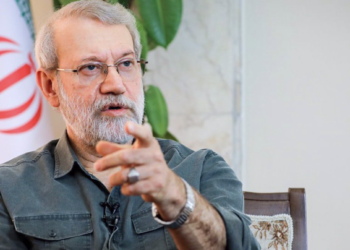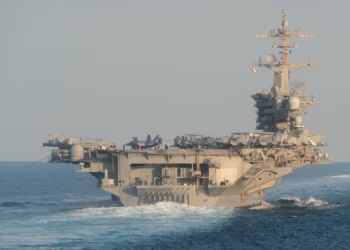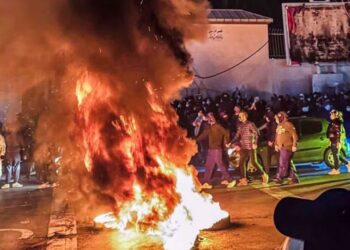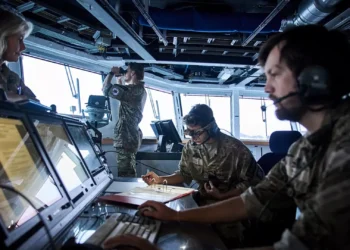BOSASO (Realist English). The sound of heavy transport planes landing at Bosaso Airport on Somalia’s northern coast has become routine. Once rare, the thunder of white IL-76 cargo aircraft now echoes across the port city several times a week.
According to flight data, satellite imagery, and multiple regional sources, the planes originate from the United Arab Emirates — and their undisclosed cargo is reportedly linked to the Rapid Support Forces (RSF) fighting in Sudan.
“They arrive often. The cargo is offloaded immediately and transferred to another plane bound for Sudan through neighbouring countries,” said Abdullahi, a senior officer in the Puntland Maritime Police Force (PMPF), speaking under a pseudonym for security reasons.
The UAE has long funded the PMPF, officially created to combat piracy off Somalia’s coast. But officers at the Bosaso base say none of the large-scale shipments are for them.
Flight data reviewed by Middle East Eye shows a sharp increase in Emirati cargo flights to Bosaso, including aircraft previously identified by U.S. intelligence as delivering Chinese-made drones and other weaponry.
A senior Bosaso port manager told reporters that over the past two years, the UAE has sent more than 500,000 containers marked “hazardous”, lacking standard documentation or declared contents. Once offloaded, the containers are swiftly transferred under heavy security to the airport for reloading onto aircraft.
“If these goods were for Puntland, we’d know where they’re stored,” the manager said. “They’re in transit — Bosaso is just a stopover.”
Security during offloading is tight, with PMPF forces sealing the port area and banning recordings or photography.
Foreign fighters and field hospitals
Bosaso Airport hosts multiple fortified compounds, including one run by UAE officers and South African contractors, and another housing Colombian mercenaries reportedly fighting alongside Sudan’s RSF.
Images obtained by MEE show dozens of Colombians arriving by plane, carrying military gear and heading to their base near the runway.
“Yes, they’re Colombian mercenaries operating here in large numbers,” Abdullahi confirmed, adding that their compound includes a private hospital treating wounded RSF fighters.
He recalled one incident when “a plane carrying injured soldiers landed with blood visibly smeared on its doors.”
The UAE has also installed what appears to be a French-made military radar system near the airport, as part of a wider network of Emirati-operated bases stretching across the Gulf of Aden and the Red Sea — including Mayun, Abd al-Kuri, Samhah, Berbera, and Mocha.
Somalia caught in a geopolitical crossfire
Analysts warn that the UAE’s activities in Puntland risk dragging Somalia into the regional conflict surrounding Sudan.
“Mogadishu cannot effectively object — it’s unprepared to counter Abu Dhabi’s growing influence,” said Abdirashid Muse, a Horn of Africa analyst.
Puntland’s president, Said Abdullahi Deni, is considered a close ally of the UAE, whose financial backing bolsters both his administration and political ambitions.
While the UAE denies supplying weapons to the RSF, experts say its involvement is motivated by access to Sudan’s gold resources and a drive for strategic dominance across the Horn of Africa.
“Puntland is ideal — it’s remote, weakly monitored, and strategically positioned,” said Martin Plaut, a scholar of African conflicts. “It allows the UAE to operate without scrutiny.”
In July, the International Criminal Court told the UN Security Council it had reasonable grounds to believe that war crimes and crimes against humanity are being committed in Sudan.
“Given the role of Bosaso, Puntland authorities could be complicit — and may have a case to answer,” Plaut said.


















